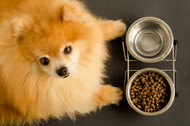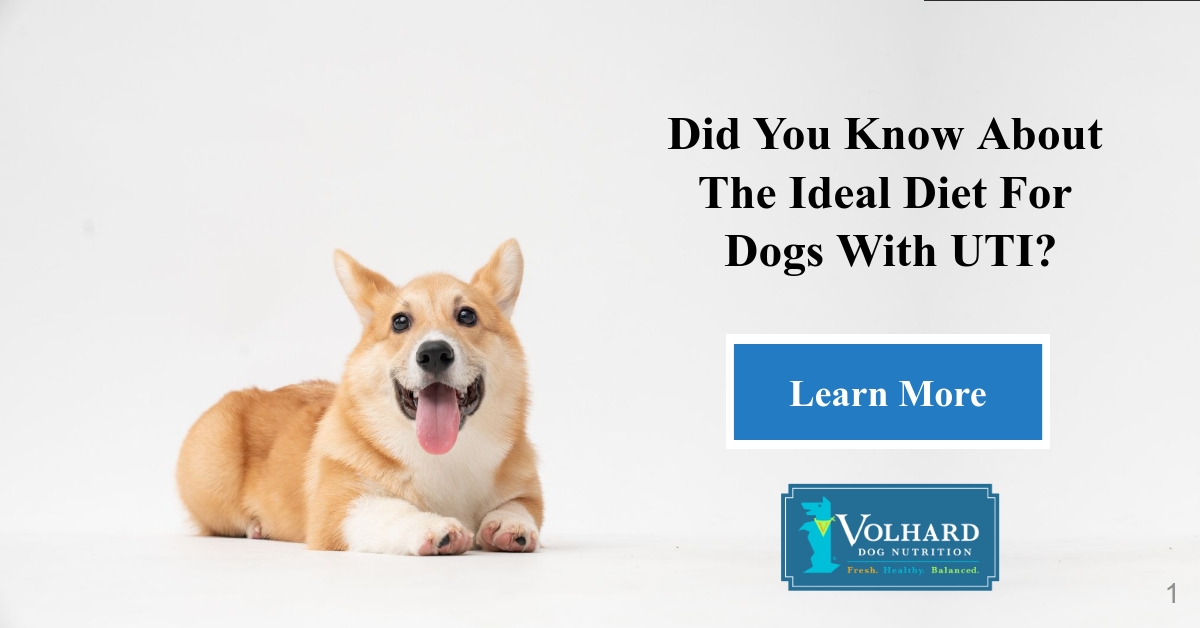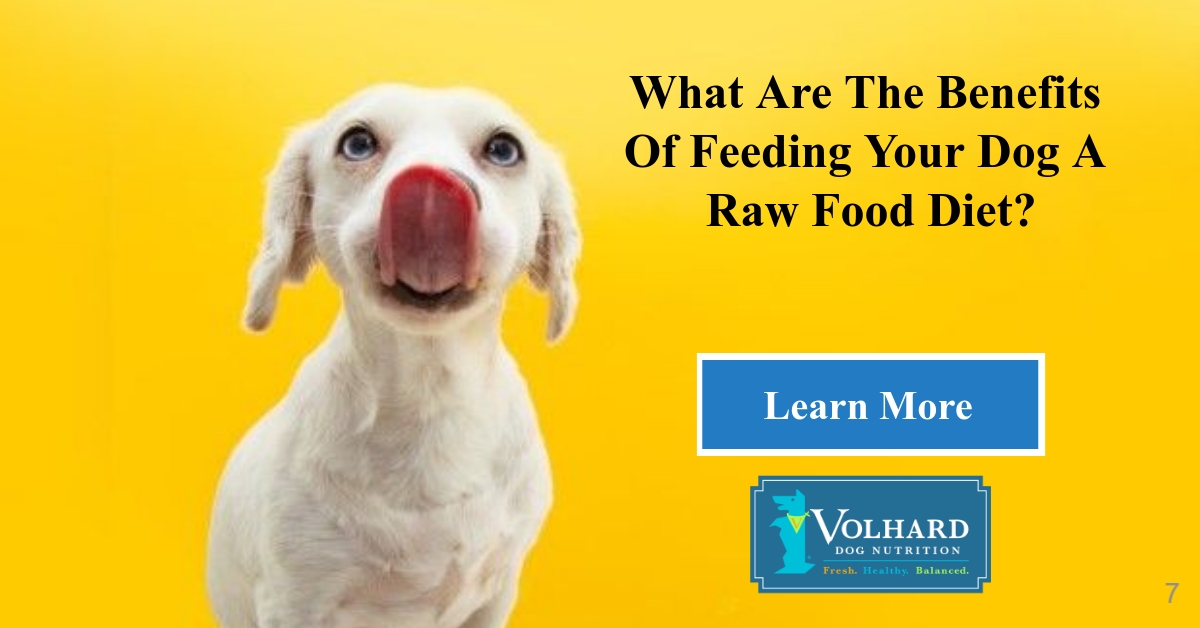This is the Ideal Diet For Dogs With UTIs
Posted by Volhard Dog Nutrition on Oct 9th 2020
For dog owners, there is nothing more heartbreaking than realizing that your canine companion has been fighting a sickness for weeks without you knowing. Sadly, urinary tract infections are an infection that can cause discomfort for sometime before signs and symptoms come to light. Regardless, if your pet has been diagnosed with one or more UTIs or you are simply a concerned pet owner who wants to prevent them occurring, there is hope! Studies have shown that a specific diet will help your dog from dealing with recurring UTIs; read on to learn how easy it can be to implement!
A urinary tract infection is able to occur anywhere in the urinary tract, and they often spring up while your canine’s immune system is already busy fighting other illnesses.
Typically, UTIs are birthed by a particular strain of bacteria called E. Coli that collects on the exterior of the urinary tract and then moves inward, sometimes as far as the bladder or kidneys. Depending on how deeply the bacteria populates the bladder or kidneys, this can create serious ramifications like kidney stones. These are crystals that form in the urine and allow even more bacteria to gather, exacerbating the initial issue.
What is a Urinary Tract Infection?
Almost every sign or symptom of a urinary tract infection is a painful experience for your pup; be vigilant in observing your pet and bringing them to the veterinarian for official diagnosis and treatment.
6 Most Commonly Occurring UTI Symptoms in the Lower Urinary Tract
- Straining to urinate
- More frequent attempts at urination
- Accidents after a history of being housetrained
- Excessive licking
- Bloody urine
- Extremely odorous or discolored urine
Symptoms of More Intense Upper Urinary Tract UTIs in the Kidneys
- Your dog’s appetite is being affected to the point of vomiting or losing weight.
- UTI may cause your dog to become extremely lethargic, feverish, and have a tender or painful abdomen when untreated.
If your pet is exhibiting signs of either an upper or lower urinary tract infection, it is essential to get them to a care provider as soon as possible. While UTIs are generally fairly common for female dogs to experience, they often can be life-threatening for male dogs.
It is important to note that once the E.Coli bacteria has been hosted by your dog, the chances of a recurring infection are significantly higher.
So how can you reduce the likelihood of your pet contracting a UTI in the first place, and prevent a recurring infection?
Studies have revealed that cereal-heavy diets are shown to increase alkaline levels in the urine, enabling the perfect environment for strains of bacteria like E. Coli to thrive and crystalize. Cereals and other grains also cause inflammation and other issues that contribute to strain on the body and immune systems. With the Volhard diet, you can control how alkaline or acidic the diet needs to be.
The best diet to prevent UTIs is a raw food diet, full of whole foods that contain B12 vitamins, Vitamin C and minerals that will support your dog’s immune system. Vitamin C can only do its work when biologically available and not synthetic essential amino acids are present in every meal the dog gets. Supplementation with B vitamins and antioxidants in times of stress and offering cooling foods such as raw fruits, vegetables, and yogurt reduce the symptoms of urinary tract infection. Foods that are known to aggravate UTIs include asparagus, spinach, raw carrots, tomatoes, and dairy products.
Additionally, one of the largest determining factors in your dog’s ability to fight off UTIs will be their hydration levels. If your dog eats 100% dry food all day you are counting on them to drink enough water to stay hydrated. Providing them a hydrated diet is a sure way to make sure their water intake is sufficient to flush the kidneys and ureters.
If you find yourself suspecting a urinary tract infection in your dog, speak to your veterinarian about your dog’s diet. It may be enough to simply increase their water intake, and to switch over to a minimally processed, whole food, fresh, hydrated diet with fresh meat. Ensure that you are avoiding dog foods that have a carbohydrate filler and are 100% processed. Protein-heavy diet we are describing has fresh meat and it will be the primary ingredient. A diet that leads with protein will increase the acid levels in the urine, which creates a hostile environment for unhealthy and unwanted bacterias.
No matter what you feed you should make sure that your dog is getting a significant amount of Omega-3s, which is a fatty acid that is an extremely important factor in a thriving and ready-for-battle immune system. Omega-3s are found in high quality fish and flaxseed oils. Raw food diets also contain certain types of live digestive enzymes and live probiotics which are microbiome supporting nutrients unable to be found in any other type of diet. There are no live probiotics in dry food or it would have to be refrigerated to keep them alive.
By implementing a nutritionally balanced, fresh, natural diet with raw protein, you will set your dog up for a healthy immune system and a urinary tract that is not disposed to infections or hosting hostile bacteria.
For more advice on dog nutrition, health, and training, contact us and check out our blog!
Volhard Dog Nutrition and its expert canine nutrition coaches are now offering online consultations to help more dog parents discover why and how to feed their dogs the healthiest of foods!
Speaking to a Volhard canine nutrition coach will help you understand the inseparable relationship between healthy food, a healthy body, and a healthy mind.
If you want to contact one of our Volhard canine nutrition coaches, don't hesitate to access our consultation page!



